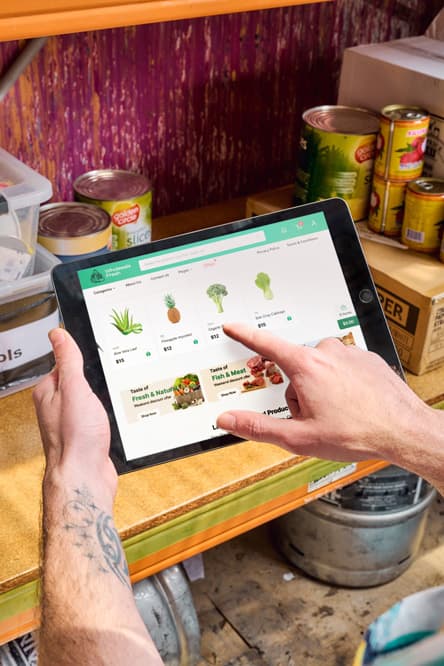
- Business Growth & Optimisation
Budgeting for Business Owners: 8 Common Mistakes to Avoid
Every successful business needs a budget.
Running a small business with great success often hinges on executing a well-curated business plan. One of the most crucial elements of small business finance and an effective business plan is implementing a solid budget.
When you take time to create a financial roadmap for your business, it will serve to navigate you through each financial year so you don’t end up in financial stress. A good budget plan will keep you organised and help you make savvy financial decisions that benefit your business.
It’s important, however, that you know how to avoid some of the most common budgeting mistakes that land small businesses in hot water. In this article, we will explore what these mistakes are and how you can avoid them.
Mistake 1: Reusing last year’s budget plan
Many business owners allocate time to review their budget and plan for the year ahead just before the start of the new financial year. While it’s normal to use your existing budget as a guide for establishing the next one, be careful not to cut corners by simply reusing the last plan as your new budget plan.
It may seem convenient and time-saving, but in the long run this strategy is unlikely to be advantageous to your business. In the space of an entire year, your business has evolved, for better or worse, and has been exposed to a different financial climate. From pandemics, to recessions and even natural disasters, there are a range of influences that need to be taken into account each financial year.
Spending habits shift in this period too. You may have more or fewer expenses, or a larger or smaller income. All these factors need to be considered in your upcoming budget plan in order to maintain an accurate and realistic budget that is relevant to your current situation. Knowing the nuances will help you determine where you can cut the fat to increase your profit margins.
When putting together a new budget it’s a must to analyse last year’s plan, but ensure you update it adequately to reflect your current business circumstances, rather than replicate it entirely.
Mistake 2: No business strategy
A budget is important, but without a solid business plan in place you’re flying blind. A business plan is the path that leads to your growth, where you outline your business goals and map out the steps you need to take to achieve them. You’ll also determine how much money you need to spend to reach your goals.
If you want to refresh your business strategy or are just getting your business started and aren’t sure how to create a business plan, read our guide on How to Write a Business Plan.
Mistake 3: Low prices
Many new business owners are keen to get the edge over their competitors. One way they attempt to attract customers is by beating their local competition on price.
If you already have tight profit margins, then this strategy is going to cause your business financial strain. Not only that, but you might find customers avoid you if they view your prices as being indicative of the quality of your products or services.
If you’re re-thinking your prices or just getting your business started and aren’t sure how to set your prices, read our blog on Retail Pricing Strategies.
Mistake 4: Spending too much, too soon
Starting up a new business takes a lot of time and energy. When money does begin to come in, it’s exciting — your hard work is paying off. It can be tempting to start spending money as soon as you start receiving revenue. However, it is often a wise move to spend slowly and focus on building up a financial buffer first.
Reinvesting is a good business strategy, but prioritising debts like business loan repayments and establishing an emergency fund will keep your business in a strong position.
Mistake 5: Underestimating expenses
When it comes to small business finance, expenses can stack up at an alarming rate. Don’t underestimate these costs. Be realistic with your budget forecast and ensure you keep track of all your upcoming expenses and any price changes that could be on the horizon, such as changes to the cost of:
materials
rent
labour
travel
advertising
equipment
shipping, and more.
If you want to save money, examine all your expenses and look for reasonable ways you can do it for less. For example, a portion of your takings will go to merchant fees. Some merchant services providers charge variable transaction fees, depending on the card used by the customer. That makes it difficult to forecast your transaction fees at any point in time, meaning you’ll probably be paying more than you expect.
Zeller Terminal accepts every card payment for one low fee of 1.4%, whether tapped, dipper or swiped. There are no hidden charges or fees, so you won’t find any nasty surprises in your merchant statement.
Ready to get started with Zeller?
Sign up nowMistake 6: Slow cash flow
Late invoice payments negatively affect your cash flow. It reduces your own ability to pay bills and suppliers, and can leave you in a pile of debt. When you’re creating your budget, keep an eye on the patterns of your cash flow and how they influence your business performance.
If you find yourself paying for products well in advance of the date that your customers purchase them or pay your invoices for them, then you will need to plan accordingly to cover yourself for these in-between periods.
Struggling with customers that don’t pay on time? Read The True Cost of Late Payments (and How to Reduce it).
Mistake 7: A one-sided plan
When creating a business budget, it’s necessary to cover all the angles. To be fully prepared, it’s ideal to create at least three different scenarios in your plan. By doing this you can envision the different financial directions your business could go, and be ready to act should any situation arise.
It’s important to have a good understanding of what your key drivers are and how they can influence your business results. These include, but are not limited to, your sales volumes, profit margin variations and pricing changes.
When you know your numbers, you can set up different scenarios. For example, you can ask yourself questions such as, “what would happen if my sales went up by 15%?” or, “what if I lost my biggest client?” Cover as many variables as possible to see what outcomes they would lead to so you can be prepared to resolve any problems that come up quickly and easily.
Mistake 8: Forgetting to monitor it
It’s essential to review your budget frequently. Many businesses create a budget, and then forget about it entirely, wasting their precious time and a golden opportunity in the process.
When you regularly monitor your budget, you’ll not only deepen your understanding of what needs to change or be improved upon for future budgets, but you can also track your actuals against your forecasts. This will help you determine whether or not you’re moving closer to your goals, or whether you might need to change tack.
Budgeting for business owners can be a time consuming process but the benefits are numerous and will serve to help you reach your business goals. By avoiding the common mistakes many businesses make, you will be well prepared for any situation that may arise.
For more tips on how to achieve success in your business, sign up to our Business Blog.



